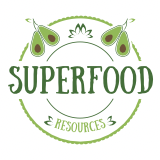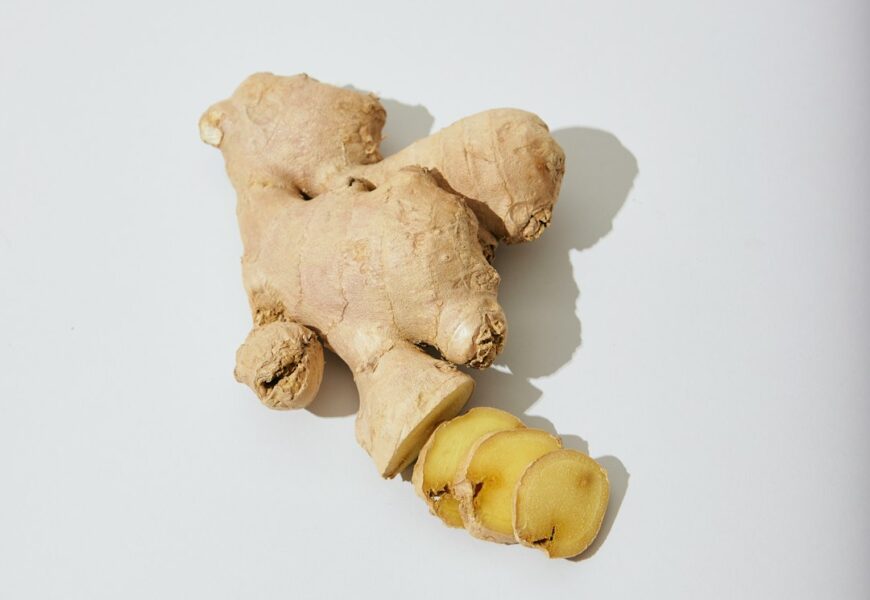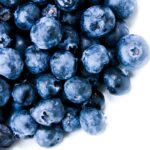Sustainable Living: Incorporating Superfoods into Your Diet
Introduction
Welcome to the green side of eating! Embracing a sustainable lifestyle doesn’t just benefit the planet—it can also revitalize your health. One of the most exciting ways to boost both your health and your eco-friendliness is by incorporating superfoods into your diet. Superfoods are not only nutritious but choosing them wisely can also promote sustainability. Whether it’s through reduced environmental impact or supporting local agriculture, integrating superfoods into your daily meals can be a delicious win-win situation. Join us as we explore how these powerful foods can make a significant impact on your health and the world around you.
What are Superfoods?

Definition and characteristics
Superfoods are primarily foods that are exceptionally rich in vitamins, minerals, and antioxidants. These nutrient powerhouses provide considerable amounts of health benefits, packed into relatively few calories. They are not a special category of food, but rather everyday ingredients that are recognized for their high nutritional density and health benefits. Typically, superfoods include various berries, leafy greens, seeds, nuts, and ancient grains, among others. The characteristics that distinguish superfoods are their capacities to enhance overall health, boost the immune system, and reduce the risk of chronic diseases.
Benefits of superfoods
Incorporating superfoods into your diet can lead to a myriad of health benefits. For instance, blueberries, known for their high levels of antioxidants, can combat oxidative stress and inflammation, playing a role in preventing heart disease and certain forms of cancer. Similarly, kale, a cruciferous vegetable, is not only a great source of fiber but also comes packed with vitamins C and K, enhancing bone health and aiding digestive processes. Omega-3 rich foods such as flaxseeds and walnuts can improve brain function and mental health. Regular consumption of these nutrient-rich foods contributes to enhanced vitality and overall wellness, supporting everything from brain health to balancing metabolism.
Importance of Sustainable Living
Definition of sustainable living
Sustainable living refers to the practice of incorporating habits and behaviors into one’s lifestyle that consider the long-term implications on our planet. This includes reducing individual and collective environmental impacts by making intentional choices that are beneficial not only to humans but the earth as well. Sustainable living is not just about consuming differently; it is about thinking and acting with an awareness that everything that’s consumed has both immediate and long-term effects on our global ecosystem.
Why incorporate sustainability into diet
Integrating sustainability into dietary choices involves thinking about where the food comes from, how it is grown or raised, and how it arrives on your plate. By choosing locally-sourced, organic, and ethically produced foods, you reduce the environmental footprint associated with long transportation distances and high-energy production methods of conventional agriculture. Additionally, supporting local farmers and producers helps maintain the local economy and promotes a closer connection to the food source, ensuring fresher and potentially more nutritious foods in your diet.
Benefits of sustainable eating
Sustainable eating not only supports ecological balance but also enhances the personal health of individuals. When you consume organically produced foods, you are less likely to ingest chemicals used in conventional farming, such as pesticides and synthetic fertilizers, which can be harmful to both your body and the environment. Furthermore, sustainable farming practices used in producing these foods preserve soil health and biodiversity, ensuring that agricultural lands remain viable for generations to come. Benefits also include better taste, as locally sourced, seasonal foods are harvested at their peak and don’t require unnatural processes to extend their shelf life. Thus, choosing sustainable eating habits contributes to the health of our planet and ourselves, making it a wholesome approach to living.
Best Superfoods for Sustainable Living
Leafy greens (e.g., kale, spinach)
Leafy greens like kale and spinach are powerhouses of nutrients and are essential for a sustainable diet. Kale, for instance, is packed with vitamins A, K, and C, and like spinach, is a great source of minerals including iron and calcium. These greens are not only low in calories but also have a minimal environmental footprint compared to other foods, making them some of the best choices for both health and sustainability. Incorporating these greens into your meals ensures you’re consuming substantial nutrients while supporting sustainable agricultural practices.
Berries (e.g., blueberries, goji berries)
Berries such as blueberries and goji berries are not only delightful and refreshing but also incredibly beneficial for your health. Blueberries are loaded with antioxidants, which help combat free radicals in your body, potentially lowering your risk of chronic diseases. Goji berries, on the other hand, have been used in traditional medicine for centuries and are known for their ability to boost immune function and eyesight. Opt for organic berries to enhance sustainability in your diet, as organic farming methods minimize pollution, conserve water, and enhance soil quality.
Seeds and nuts (e.g., chia seeds, almonds)
Incorporating seeds and nuts like chia seeds and almonds into your diet is another fantastic way to enhance both health and sustainability. Chia seeds are filled with omega-3 fatty acids, fiber, and protein, making them excellent for heart health and digestion. Almonds are nutrient-dense, providing a good amount of vitamin E, magnesium, and protein. Both almonds and chia seeds are sustainable options due to their relatively lower water requirements compared to other crops, thereby promoting conservation of precious water resources.
How to Incorporate Superfoods into Your Diet
Smoothie recipes
Integrating superfoods into your diet can be delicious and simple, especially with smoothies. Try blending a handful of spinach or kale with some blueberries, a banana for sweetness, and a tablespoon of chia seeds for a nutrient-rich breakfast or snack. This green smoothie packs plenty of antioxidants, vitamins, and minerals, offering a quick and healthy boost to your day. You can also experiment by adding other superfoods like goji berries or a spoonful of almond butter to enhance flavor and nutritional value.
Salad ideas
Salads offer a perfect canvas for a variety of superfoods. Start with a base of mixed greens like spinach and kale, and top with colorful blueberries, sliced almonds, and your choice of protein for a fulfilling meal. For dressing, a simple homemade vinaigrette made with olive oil and lemon juice can complement the flavors and add an extra layer of nutrition. Not only are these salads packed with essential nutrients, but they also help you incorporate diverse superfoods into your everyday meals efficiently.
Snack options
For sustainable snacking, consider options that include seeds, nuts, and berries. Create your own trail mix using goji berries, almonds, and other nuts for a satisfying midday snack. Chia seed puddings, prepared by soaking chia seeds in almond milk and topped with fresh berries, offer a delightful treat that’s both nutritious and good for the planet. These snacks are not only easy to prepare but also provide essential nutrients, making them a great addition to your diet oriented towards health and sustainability.
Tips for Buying Organic Superfoods
Understanding the various labels and certifications on superfood products can be crucial for those wanting to make sustainable and healthy choices. When you see labels like “USDA Organic,” it means the food has been produced without synthetic chemicals, genetically modified organisms (GMOs), or irradiation. Another common certification is “Non-GMO Project Verified,” focusing specifically on avoiding genetically modified ingredients. Familiarizing yourself with these identifiers helps ensure that what you’re buying aligns with your values on environmental sustainability and personal health.
Shopping local and seasonal
One of the best ways to ensure the freshness and sustainability of the superfoods you consume is by buying local and seasonal products. Local produce doesn’t require long transportation, significantly reducing carbon emissions and promoting a smaller carbon footprint. Seasonal buying also supports local agriculture and helps in maintaining the natural agricultural cycles, without the need for artificial ripening agents or excessive refrigeration. Here are a few tips for shopping local:
– Visit farmer’s markets in your area.
– Join a local food co-op.
– Subscribe to a Community Supported Agriculture (CSA) box.
Engaging in these activities can not only help reduce environmental impact but also connects you more closely with where your food comes from.
Online resources for organic superfoods
For those who do not have easy access to local markets or want the convenience of delivery, numerous online resources are available. Websites like Thrive Market or Vitacost offer a wide range of organic superfoods that can be shipped directly to your door. These platforms often provide detailed product descriptions and origin information, making it easier to make informed decisions about the items you purchase.
Superfood Recipes for Sustainability

To integrate superfoods into your daily meals thoughtfully and deliciously, try out these easy, sustainable recipes.
Quinoa Buddha Bowl recipe
A staple in the world of superfoods, quinoa is a high-protein, gluten-free grain that can be the base of a nourishing and environmentally friendly Buddha bowl. Here’s how to make it:
– Cook 1 cup of quinoa according to the package directions.
– Top the cooked quinoa with a mixture of your favorite seasonal vegetables (both raw and roasted work well), such as carrots, broccoli, and bell peppers.
– Add a protein source like chickpeas or tofu.
– Drizzle with a simple lemon-tahini dressing.
This bowl is not only packed with nutrients but also customizable according to what’s in season in your region.
Vegan Chia Seed Pudding
Chia seeds are known for their omega-3 fatty acids, fiber, and protein. For a sustainable and heart-healthy breakfast or dessert, try vegan chia seed pudding:
– Mix 1/4 cup of chia seeds with 1 cup of almond milk or another plant-based milk.
– Sweeten with a tablespoon of maple syrup or agave nectar.
– Let the mixture sit overnight in the refrigerator.
– Serve with a topping of fresh, local fruits and a sprinkle of nuts for extra crunch.
Avocado Toast with Hemp Seeds
For an easy, nutritious start to your day, avocado toast with hemp seeds offers a great combination of healthy fats and proteins, perfect for long-lasting energy:
– Toast a slice of organic whole-grain bread.
– Mash a ripe avocado and spread it over the toast.
– Sprinkle a tablespoon of hemp seeds on top along with a pinch of salt and pepper.
– Optional: Add microgreens or sliced radishes for extra flavor and nutrients.
This simple recipe not only tastes great but also incorporates superfoods in an accessible and sustainable manner.
Conclusion
As we’ve explored throughout this article, integrating superfoods into your diet isn’t just about enhancing personal health—it’s about contributing to a more sustainable world. By choosing organic, locally sourced superfoods, you not only nourish your body with the best nutrients but also support sustainable agriculture practices that have a lesser environmental impact. Whether you start small by incorporating a handful of these powerful foods into your meals or overhaul your diet completely, the benefits are immense and multi-faceted. Remember, every small step counts towards a healthier lifestyle and a healthier planet. So, why not start today?










